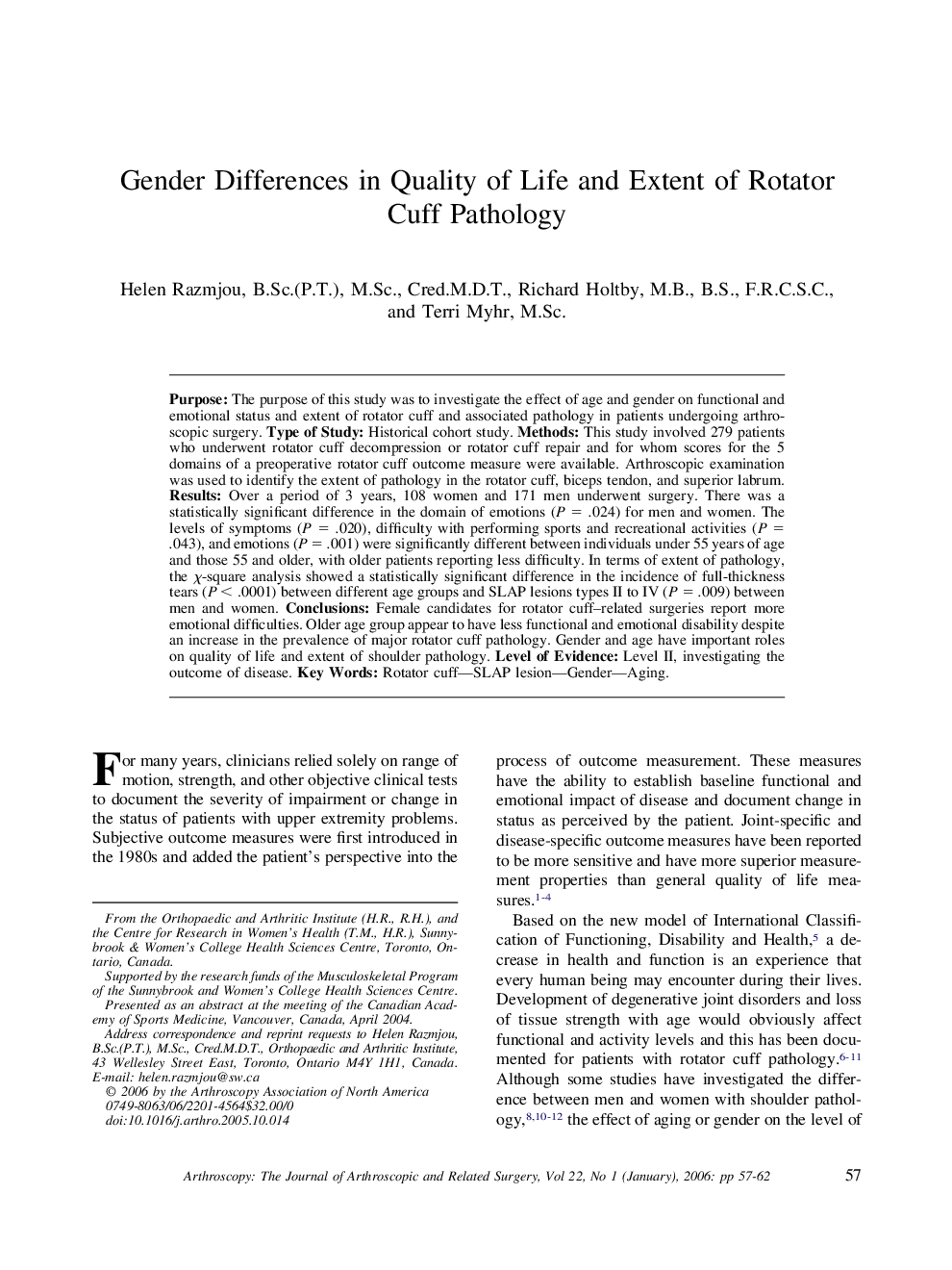| Article ID | Journal | Published Year | Pages | File Type |
|---|---|---|---|---|
| 4047399 | Arthroscopy: The Journal of Arthroscopic & Related Surgery | 2006 | 6 Pages |
PurposeThe purpose of this study was to investigate the effect of age and gender on functional and emotional status and extent of rotator cuff and associated pathology in patients undergoing arthroscopic surgery.Type of StudyHistorical cohort study.MethodsThis study involved 279 patients who underwent rotator cuff decompression or rotator cuff repair and for whom scores for the 5 domains of a preoperative rotator cuff outcome measure were available. Arthroscopic examination was used to identify the extent of pathology in the rotator cuff, biceps tendon, and superior labrum.ResultsOver a period of 3 years, 108 women and 171 men underwent surgery. There was a statistically significant difference in the domain of emotions (P = .024) for men and women. The levels of symptoms (P = .020), difficulty with performing sports and recreational activities (P = .043), and emotions (P = .001) were significantly different between individuals under 55 years of age and those 55 and older, with older patients reporting less difficulty. In terms of extent of pathology, the χ-square analysis showed a statistically significant difference in the incidence of full-thickness tears (P < .0001) between different age groups and SLAP lesions types II to IV (P = .009) between men and women.ConclusionsFemale candidates for rotator cuff–related surgeries report more emotional difficulties. Older age group appear to have less functional and emotional disability despite an increase in the prevalence of major rotator cuff pathology. Gender and age have important roles on quality of life and extent of shoulder pathology.Level of EvidenceLevel II, investigating the outcome of disease.
